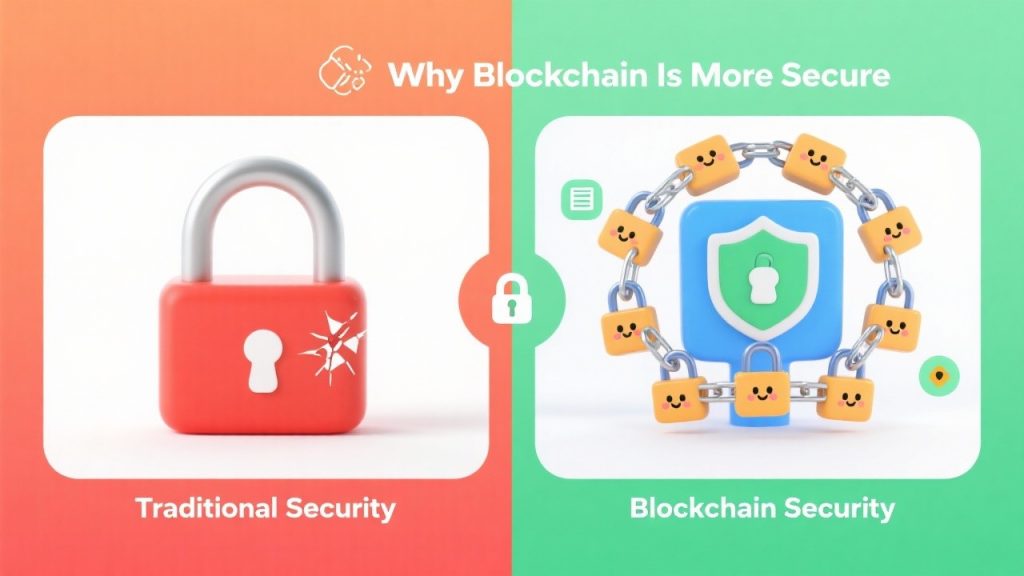Introduction: Why Blockchain Matters in Cyber Defense
Cyberattacks are rapidly evolving, and as a result, they threaten data, finance, and even national security. To counter these risks, the role of blockchain in cyber defense is becoming increasingly critical. Unlike traditional methods, blockchain offers a decentralized, tamper-resistant, and transparent approach to securing digital infrastructure.

What is Blockchain in Simple Terms?
Blockchain is a distributed ledger system where every transaction is securely recorded across multiple nodes. Unlike centralized systems, blockchain eliminates a single point of failure, making it highly resilient against hacking attempts.
👉 For example, in a centralized database, a hacker only needs to breach one server. In blockchain, the attacker must compromise more than 51% of nodes, which is extremely difficult.
🛡️ Benefits of Blockchain in Cyber Defense
1. Decentralization for Enhanced Security

Decentralization ensures that no single authority controls the system, reducing vulnerabilities. Even if one node is compromised, others maintain the integrity of the data.
2. Immutable Records to Prevent Data Tampering
Once data is added to a blockchain, it cannot be altered without leaving a trace. This immutability feature makes blockchain perfect for securing sensitive logs and records.
3. Strong Authentication and Identity Protection
Blockchain can be integrated with digital identity systems to ensure multi-factor authentication and safeguard users from identity theft.
4. Smart Contracts for Automated Defense
Smart contracts execute predefined rules automatically. In cybersecurity, they can be used to detect unusual activity and trigger defense protocols instantly.
5. Fraud Detection and Prevention
Blockchain enables real-time tracking of transactions, which helps detect suspicious activities faster than traditional methods.
🔄 How Blockchain Integrates with Cyber Defense Tools
Blockchain + AI
Artificial Intelligence enhances blockchain by identifying threats, while blockchain ensures secure AI data sharing.
Blockchain + IoT Security
IoT devices are highly vulnerable. Blockchain provides secure, distributed authentication for IoT devices, reducing attack risks.
Blockchain + Cloud Security
By storing critical information on blockchain rather than a centralized server, cloud data becomes more resilient to ransomware attacks.
Future of Blockchain in Cyber Defense
The future of cyber defense will likely revolve around blockchain-based ecosystems. With quantum computing threats on the horizon, blockchain is expected to evolve with quantum-resistant cryptography.
Key Predictions:
- Governments will adopt blockchain for national security and defense.
- Enterprises will use blockchain for secure supply chains and financial systems.
- Blockchain + AI synergy will create self-learning, automated cyber defense models.
Challenges of Blockchain in Cybersecurity
While blockchain has immense potential, it is not a silver bullet.
- Scalability issues with large datasets.
- High energy consumption in Proof-of-Work models.
- Regulatory uncertainty across different countries.
Despite these challenges, its long-term benefits outweigh the drawbacks.
Conclusion: Blockchain as the Future Shield in Cybersecurity
Blockchain is no longer just about cryptocurrency. Its role in cyber defense is transformative, offering decentralization, transparency, and stronger protection against evolving threats. As cyber risks grow, blockchain will play a pivotal role in safeguarding our digital world.








